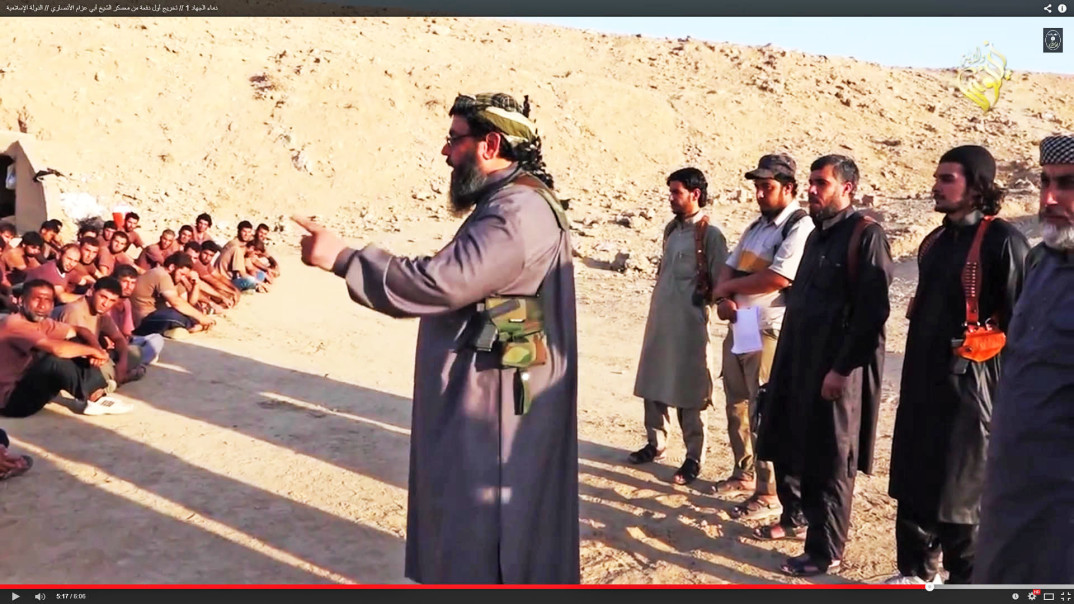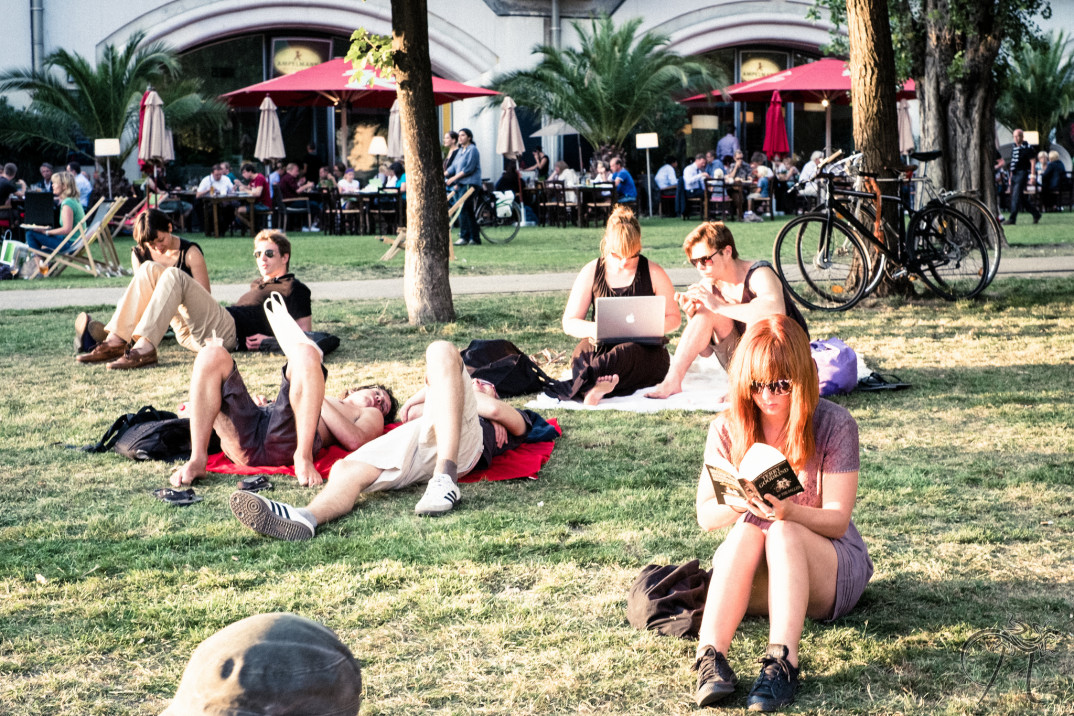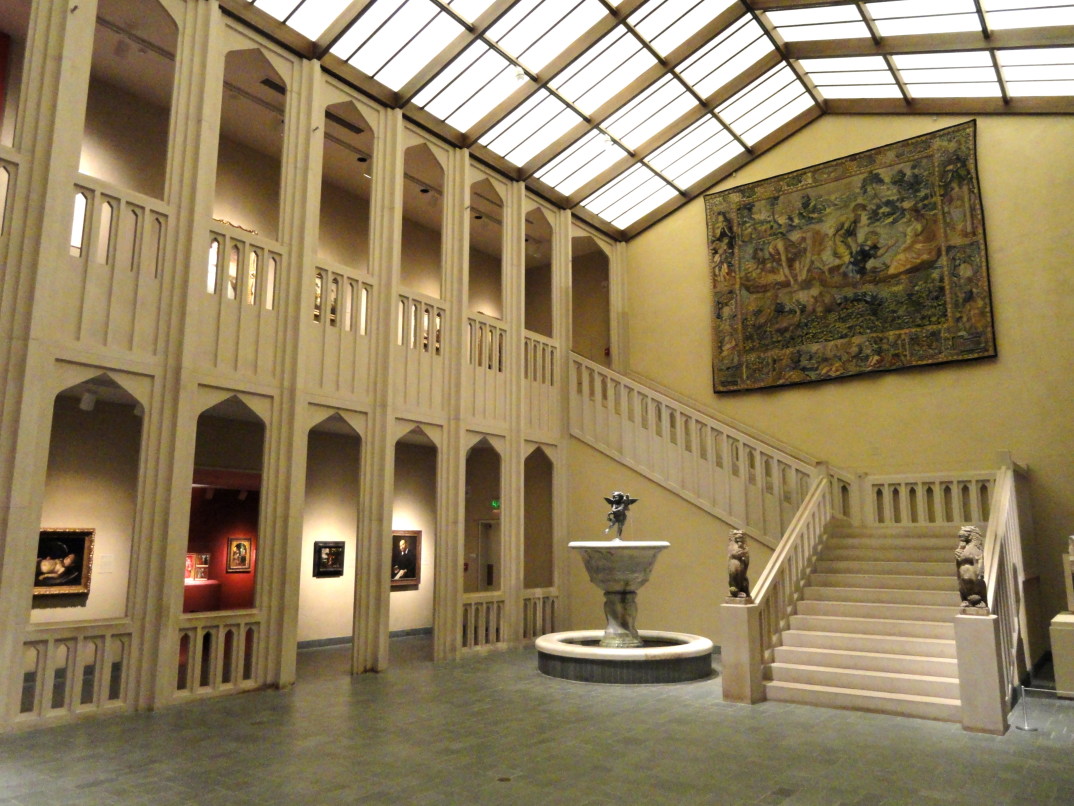The Internet is forever. Think before you post. Once something is uploaded, it can’t be taken back. These prophetic warnings, parroted in technology literacy PSAs and middle school lectures all over the country, remind us to think about our online presence, to consider what will come up when we Google our name fifteen years from now.
Battlefield A.I. and the Future of War
The robots are coming. Slowly and clumsily, perhaps, but they’re coming. At least, it would seem that way, with competitions like The Robotics Challenge taking place. Funded by the Department of Defense, the challenge brought together 24 teams to show off the best and most versatile robots they could, with a $2 million prize for the winner.
The Poetry of ISIS: Is it Literature?
Since it first began capturing Iraqi towns in 2014, the militant group ISIS has become notorious for its widespread use of violence and atrocity. However, as Robyn Creswell and Bernard Haykel point out in The New Yorker, this violence is only one of the qualities defining the Islamic State. For the brutal acts of violence for which ISIS have become famous is juxtaposed with something decidedly more elegant: Arabic poetry. Such poetry, written by militants and figures like Ahlam al-Nasr, the so-called “Poetess of the Islamic State,” offer a key look into the narratives and art forms involved in the Islamic State’s spread.
What We’re Reading, June 5, 2015
Check out these links suggested by members of The Prindle Post staff:
Bad chocolate science intentionally spread by a journalist (Jacquelyn)
Virtual bullying enabled by Clash of Clans (Andy)
The differences between prisons in Norway and the U.S. (Conner)
Why is it a crime to avoid government scrutiny? (Andy)
The Red Cross is failing Haiti (Jacquelyn)
“I’m a liberal professor and my liberal students terrify me” (Andy)
The harrowing story of Ota Benga (Conner)
Texas just made college less safe (Linda)
Is it possible to purchase ethically-made clothing? (Camille)
Meditation changes your brain (Jacquelyn)
What have you been reading lately? Share a link with us in the comments!
Examining Ethics: Prindle’s Ethics Podcast Launched!
UPDATE – We’ve launched. Visit the Examining Ethics show page here.
The Prindle Institute is hosting an ethics podcast about ethical issues big and small. Each episode will feature interviews with philosophers, writers, scholars, artists and filmmakers from all over the world about the ethical issues in their work. We’ll also have discussions with experts and our host, Andy Cullison, about a range of issues in ethics. So far you can learn about food ethics, ethics bowl, torture, racial implicit bias, and the phrase, “the right side of history.”
Communion of a Different Kind
When the authors of Indiana’s Religious Freedom Restoration Act (RFRA) passed it into law, marijuana churches were probably the last things on their mind. Yet, only a few months after the act’s passing, Indiana’s First Church of Cannabis has been established. Existing under the freedoms established by RFRA, the church operates on principles of “love, respect, equality and compassion,” with marijuana as its official sacrament. While many have cast it as a joke or a political statement against RFRA, the church also raises a number of questions about how the government can and should interact with organized religion.
Unperformable Works and the Ontology of Art
In February, Dr. Wesley Cray of Grand Valley State University presented his talk “Unperformable Works and the Ontology of Art” as a part of the Young Philosophers Lecture Series hosted by the Prindle Institute and the DePauw Philosophy Department. Next week, we’ll post Dr. Danielle Wenner’s lecture “What Is the Meaning of Freedom?”
Throughout May and June, we’ll continue to post videos of each talk (also available on YouTube).
Enjoy, and be sure to let us know what you think in the comments!
“The Briefcase”: Is Awareness Enough?
Two families, $200,000, and any number of difficult decisions. It is a well-worn recipe for game shows and reality television alike. In this regard, it appears that CBS’ new show, “The Briefcase,” is no different from its predecessors. However, the context this formula inhabits has sparked a growing controversy around the show. For, in this case, the families are grappling with poverty, and they must ultimately decide whether to keep their share of the money or give it to the other, equally struggling family.
ABC News Further Undercuts Media’s Credibility
This post originally appeared in The Indy Star on May 29, 2015.
The real damage done by ABC’s George Stephanopoulos’ vacuous ethics – as shown by his revelation of gifts to the Clinton Foundation – won’t be to him or his network. ABC will still get its ratings. George will still make his mega- millions in his cushy anchor seat, convinced he is a real news reporter and has done nothing wrong. It is the citizenry who once again takes it on the chin because of misdeeds of the powerful and pompous.
It’s a throwback, for sure, but there was a time when the voting public put its trust in the powerful media organizations to report news fairly and fully. The mainstream press was counted on to provide the information flow that empowered citizens in a democracy.
Proof that the public is victim to journalistic dereliction comes from a new Rasmussen Reports survey. It finds that 61 percent of American voters distrust the political news they receive from the media. That’s an increase of 16 points since last fall. As survey respondents look ahead to the 2016 presidential campaign, only 23 percent think reporters will offer unbiased coverage.
When high-profile network names such as Stephanopoulos and NBC’s Brian Williams ignore basic journalistic ethics standards, the well of trust is poisoned across the industry. News consumers conclude that the misguided moral compasses of the big shots represent the values of the news industry as a whole. Citizens thus lose faith in news sources and disengage from the public sphere. Knowing that ABC’s chief political correspondent has ethics issues no doubt makes news consumers wonder about what other network reporters are hiding.
ABC’s brass wrote off Stephanopoulos’ ethics breech as just a “mistake,” the network statement adding ABC “stands behind him.” The failure of the network to see the broader implications of Stephanopoulos’ chummy connections with the Clinton Foundation exposes a groupthink in ABC’s hierarchy. A quote from prominent 20th century journalist and social observer Walter Lippmann captures the ABC situation: “Where all think alike, no one thinks very much.”
The Radio Television Digital News Association is the nation’s premiere professional electronic news organization. Its Code of Ethics is apparently not posted at ABC’s news headquarters. Under its Fairness section, the code states that reporting should be based “on professional perspective, not personal bias.” With regard to integrity, the ethics code warns electronic journalists to not “engage in activities that may compromise their integrity or independence.”
Stephanopoulos’ weak response to this flap shows how oblivious he is to the seriousness of the situation. He explained away to his ABC audience that his donations to the Clinton Foundation simply reflected his interest in stopping AIDS, helping children and saving the environment. A heck of a nice guy, sure, but he apparently doesn’t know that less politically charged organizations also take donations for these causes. His self-imposed penalty was to remove himself as moderator for an upcoming Republican primary debate. And Tom Brady won’t be the referee in the Patriots’ next NFL playoff game.
Nobody expects reporters to be blank slates with no personal opinions. But regardless of a journalist’s personal political leanings, the professional reporter can still strive to be fair. At the least, reporters must excuse themselves from stories in which they have hardened attitudes or clear conflicts of interest. All of this takes a high degree of integrity, hard work and foundational principles by the people who make up the news industry.
The citizenry is powerless when it operates in a void of accurate and full information. The free press was created by the nation’s founders to serve as the citizens’ watchdog over the government and the powerful. Public confidence in the press and government is collapsing, leaving the public with no suitable surrogates and nowhere to turn.
James Madison once wrote, “Government, without popular information, or the means of acquiring it, is but a prologue to a farce or a tragedy.” If the great United States experiment ever becomes a farce or tragedy, big media’s role in stifling and warping the information of the day will be a major factor.
Whiteness, Accessibility and the Art Museum
It is easy to think of the art museum as a clinical space. Seemingly divorced from the outside world at times, these pristine spaces and the artworks that inhabit them often could not feel farther from real-life political struggles. Yet these sanitized, white gallery walls and climate-controlled rooms play host to a number of political debates that are intimately connected to the world beyond the museum gates.
Continue reading “Whiteness, Accessibility and the Art Museum”










